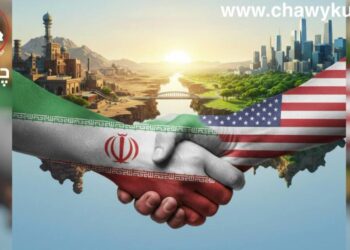On Saturday morning (October 7, 2023), Hamas fighters infiltrated Israel in an unprecedented and complex attack, killing 600 Jews and wounding hundreds more. The Palestinian armed groups have also taken Israelis hostage. Israeli Prime Minister Benjamin Netanyahu has responded to attacks on the Gaza Strip and said that “we are in war”. What was behind this shocking attack and what lies ahead for Israel and the region?
What are quick views for the event?”
Around the world, dozens of experts and senior figures have called Saturday’s Hamas attack Israeli 9/11. On this day, the intellectual cells and experts had a day full of quick thinking. To support the conclusions presented in this article, I will refer to the insights of only three members of the Atlantic Council Thought House:
While violence has occasionally erupted in the region in recent years, Jonathan Panikoff, director of the Scowcroft Middle East Security Initiative and former deputy US national intelligence officer for the Middle East, believes this time it will not be trivial because the nature of the attack does not allow it. Israeli forces responded with retaliatory attacks on Gaza, and there are fears that Hezbollah will enter the fight from its base in Lebanon. Jonathan notes there have been warnings for years about the possibility of a multi-front war, and if this is the beginning of one, many more deaths and destruction may be a possibility above and beyond anything we have seen in decades.
Richard LeBaron – Richard LeBaron was the former deputy chief of mission at the U.S. Embassy in Israel, deduced the West Coast would be another front in any such war. He believed that size of the attacks indicates that planning expected began before the Israeli-Saudi talks picked up steam, but they are still intended to send a message to Riyadh, that the Palestinian issue should not be treated as just another side topic in normalization talks.
While the normalization agreement is an important factor, the main reason behind the attacks, as Richard tells us, “is to draw attention to the fact that the conflict between Israel and the Palestinians has not been resolved “. One fact that we must not forget is that the US administration has been trying for years to normalize Israel’s relations with Islamic countries. Without receiving a solution or guarantee for Palestinian rights. Not long ago, Hamas believed the situation was significantly worse under the right-wing Israeli government. If the event has a hundred signs, the first is that Hamas has been able to badly embarrass the Israeli leadership and its military and intelligence apparatus. For Hamas, that may be enough.
“Kirsten Fontenrose”, who is a non-resident senior fellow at the Scowcroft Middle East Security Initiative and former senior Gulf director at the U.S. National Security Council, says; “If Hamas, backed by Iran, was trying to derail those negotiations. In reaction, Israel is closing in on Gaza with an unprecedented presence and suffocating restrictions”. That would be the new baseline that Riyadh would now have to negotiate a “way forward” for the Palestinians. To maintain the negotiations, Kirsten wants to advise Israel to exercise restraint in responding to Saturday’s attacks. If Israel is not careful, it will hand over the outcome of its agreement with Hamas and Iran to Hamas and Iran. It is impossible for Saudi Arabia to deviate from these actions in order to reach an agreement with Israel.
The war is a “representation of the relations of power in the Middle East” if we call it heightening of the hand of regional powers as a result of the declining role of a power like the United States. But most accurately, it is a dangerous geopolitical change caused by natural gas and oil pipelines.
The last lines are; Iran has succeeded in not killing its soldiers in the Middle East, keeping the wars away from Iran’s land, making the Arabs as its partners in attacking Israel. Will Israel and its allies do the same and take the war inside Iran?





























































